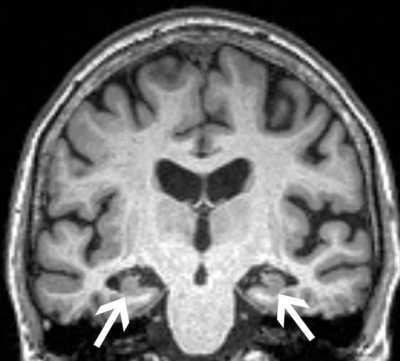If you have low self-esteem you might be reluctant to try new things for fear it will make you feel...
Autism: Racial and Ethnic Disparities in ASD
Alzheimer’s Disease: Animal Model Demonstrates Ability of Novel Enzyme to Decrease Amyloid Plaques
Living with a phobia forces you to resign to a life of worrying about a certain object or situation that...
An Online Masters in Mental Health Counseling: The Basics
Evaluation of Dietary Supplements in Reducing Memory Loss Associated Brain Tangles
Reduction of brain plaques and tangles leads to improved memory, focus, concentration and executive function as has been shown by...
Are There Sex Differences in Recovery from Sports-Related Concussions?
Links Between Major Surgery, Amyloid and Memory Problems
Food Insecurity Rises During COVID-19 Pandemic
Epigenetic Sperm Changes Linked to Autism Risk
Nanoparticles May Enable Delivery of Drugs Across Blood Brain Barrier
Hearing Loss Linked to Dementia Risk in Hispanic Communities
Autism: Prefrontal Synthesis Training Can Enhance Language Acquisition
 Response: ImagiRation is a Boston-based startup with links to MIT, Harvard, and Boston University. ImagiRation has developed a highly innovative adaptive language therapy application for children with autism, Mental Imagery Therapy for Autism (MITA).
MedicalResearch.com: How is the Mental Imagery Therapy for Autism program delivered?
Response: MITA language therapy is administered by parents at home. MITA application works on all smartphones and tablet devices and is designed for children ages 2 to 12 years.
(more…)
Response: ImagiRation is a Boston-based startup with links to MIT, Harvard, and Boston University. ImagiRation has developed a highly innovative adaptive language therapy application for children with autism, Mental Imagery Therapy for Autism (MITA).
MedicalResearch.com: How is the Mental Imagery Therapy for Autism program delivered?
Response: MITA language therapy is administered by parents at home. MITA application works on all smartphones and tablet devices and is designed for children ages 2 to 12 years.
(more…)Genetic Profile Links Red Wine and Cheese to Preservation of Cognitive Performance
Algernon? Scientists Use Drug to Reverse Memory Loss in Mice
Mental and Physical Health Suffer In Recently Divorced
Anxiety Linked to Increased Cognitive Decline in Alzheimer’s Disease
Study Suggests Gut Microbes Linked to Amyloid Found in Alzheimers Dementia
Is It Safe To Fly After a Concussion?
Finasteride: Study Investigates Suicidality and Psychological Adverse Events
COVID Pandemic: Job Insecurity Linked to Depression and Anxiety in Young Adults -19
BrainHQ Training Plus Exercise Improved Cognition and Self-Care Capacity in Heart Failure Patients
 Dr. Mahncke earned his PhD at UCSF in the lab where lifelong brain plasticity was discovered. At the request of his academic mentor, he currently leads a global team of more than 400 brain scientists engaged in designing, testing, refining, and validating the computerized brain exercises found in the BrainHQ app from Posit Science, where he serves as CEO.
MedicalResearch.com Tell us what’s important about this new study in people with heart failure?
Response: Heart failure is a common condition that even when properly treated can have adverse long-term health outcomes and high medical costs. Heart failure commonly causes cognitive impairment, which can have devastating effect on patient abilities to engage in self-care, and which contributes to poor clinical outcomes, increased rehospitalizations, and higher mortality rates. What makes these results exciting is that the Emory University researchers discovered that a simple intervention – a fairly modest amount of walking and brain exercise – not only significantly improved a standard measure of cognition, but also significantly improved multiple measures that drive better health outcomes and lower costs.
MedicalResearch.com: What is heart failure?
Response: Heart failure – sometimes called congestive heart failure or congestive cardiac failure – is when the heart cannot pump sufficient blood flow to maintain the body’s needs. Common symptoms include excessive tiredness, shortness of breath and swelling particularly in legs. It’s treated with a combination of lifestyle changes, drugs, and devices. An estimated 6.5 million Americans are diagnosed with heart failure, with 960,000 new cases each year, leading some to describe it as reaching epidemic proportions. In older adults, it’s the most common cause of hospital readmissions within 30 days of discharge and among the most costly areas of Medicare expenditures.
(more…)
Dr. Mahncke earned his PhD at UCSF in the lab where lifelong brain plasticity was discovered. At the request of his academic mentor, he currently leads a global team of more than 400 brain scientists engaged in designing, testing, refining, and validating the computerized brain exercises found in the BrainHQ app from Posit Science, where he serves as CEO.
MedicalResearch.com Tell us what’s important about this new study in people with heart failure?
Response: Heart failure is a common condition that even when properly treated can have adverse long-term health outcomes and high medical costs. Heart failure commonly causes cognitive impairment, which can have devastating effect on patient abilities to engage in self-care, and which contributes to poor clinical outcomes, increased rehospitalizations, and higher mortality rates. What makes these results exciting is that the Emory University researchers discovered that a simple intervention – a fairly modest amount of walking and brain exercise – not only significantly improved a standard measure of cognition, but also significantly improved multiple measures that drive better health outcomes and lower costs.
MedicalResearch.com: What is heart failure?
Response: Heart failure – sometimes called congestive heart failure or congestive cardiac failure – is when the heart cannot pump sufficient blood flow to maintain the body’s needs. Common symptoms include excessive tiredness, shortness of breath and swelling particularly in legs. It’s treated with a combination of lifestyle changes, drugs, and devices. An estimated 6.5 million Americans are diagnosed with heart failure, with 960,000 new cases each year, leading some to describe it as reaching epidemic proportions. In older adults, it’s the most common cause of hospital readmissions within 30 days of discharge and among the most costly areas of Medicare expenditures.
(more…)Psychiatric Subtypes Identified by AI-Enhanced EEGs
 Response: Cohen Veterans Bioscience (CVB) is a non-profit 501(c)(3) research biotech dedicated to fast-tracking the development of diagnostic tests and personalized therapeutics for the millions of Veterans and civilians who suffer the devastating effects of trauma-related and other brain disorders.
To learn about CVB’s research efforts visit www.cohenveteransbioscience.org.
MedicalResearch.com: How can patients with PTSD or MDD benefit from this information?
Response: With the discovery of this new brain imaging biomarker, patients who suffer from PTSD or MDD may be guided towards the most effective treatment without waiting months and months to find a treatment that may work for them.
MedicalResearch.com: What is the background for this study?
Response: This study, which was supported with a grant from Cohen Veterans Bioscience, grants from the National Institute of Mental Health (NIMH and other supporters, derives from our work over the past few years which has pointed to the critical importance of understanding how patients with a variety of psychiatric disorders differ biologically. The shortcomings of our current diagnostic system have become very clear over the past 1-2 decades, but the availability of tools for transcending these limitations on the back of objective biological tests has not kept pace with the need for those tools.
In prior work, we have used a variety of methods, including different types of brain imaging, to identify brain signals that underpin key biological differences within and across traditional psychiatric diagnoses. We have also developed specialized AI tools for decoding complex patterns of brain activity in order to understand and quantify biological heterogeneity in individual patients. These developments have then, in turn, converged with the completion of a number of large brain imaging-coupled clinical trials, which have provided a scale of these types of data not previously available in the field.
(more…)
Response: Cohen Veterans Bioscience (CVB) is a non-profit 501(c)(3) research biotech dedicated to fast-tracking the development of diagnostic tests and personalized therapeutics for the millions of Veterans and civilians who suffer the devastating effects of trauma-related and other brain disorders.
To learn about CVB’s research efforts visit www.cohenveteransbioscience.org.
MedicalResearch.com: How can patients with PTSD or MDD benefit from this information?
Response: With the discovery of this new brain imaging biomarker, patients who suffer from PTSD or MDD may be guided towards the most effective treatment without waiting months and months to find a treatment that may work for them.
MedicalResearch.com: What is the background for this study?
Response: This study, which was supported with a grant from Cohen Veterans Bioscience, grants from the National Institute of Mental Health (NIMH and other supporters, derives from our work over the past few years which has pointed to the critical importance of understanding how patients with a variety of psychiatric disorders differ biologically. The shortcomings of our current diagnostic system have become very clear over the past 1-2 decades, but the availability of tools for transcending these limitations on the back of objective biological tests has not kept pace with the need for those tools.
In prior work, we have used a variety of methods, including different types of brain imaging, to identify brain signals that underpin key biological differences within and across traditional psychiatric diagnoses. We have also developed specialized AI tools for decoding complex patterns of brain activity in order to understand and quantify biological heterogeneity in individual patients. These developments have then, in turn, converged with the completion of a number of large brain imaging-coupled clinical trials, which have provided a scale of these types of data not previously available in the field.
(more…)Pandemic Anxiety May Be Causing Teeth Grinding Rates To Increase
Around 8% of the population in America experiences sleep bruxism - a disorder characterized by teeth grinding and jaw clenching that leads to headaches, the wearing  down of teeth, and jaw pain - to mention just a few effects. A new market research report called COVID-19 Impact on Sleeping Bruxism Treatment Market Overview and Forecast 2020 to 2026 has found that the current health crisis has led to a spike in bruxism. The report forecasts a big rise in the need for treatment of the effects of bruxism owing to currently high levels of stress across the globe.
down of teeth, and jaw pain - to mention just a few effects. A new market research report called COVID-19 Impact on Sleeping Bruxism Treatment Market Overview and Forecast 2020 to 2026 has found that the current health crisis has led to a spike in bruxism. The report forecasts a big rise in the need for treatment of the effects of bruxism owing to currently high levels of stress across the globe.
Why Is Bruxism On The Rise?
It is a stressful time in many ways, and this increases the likelihood of teeth grinding and jaw clenching at night. A study published in the journal Head & Face Medicine showed that nightly gnashing of teeth was especially prevalent among those who tried to cope with stress by escaping from difficult situations. Bruxism can lead to everything from tooth sensitivity to pain in the muscles of the jaw responsible for chewing. While there are many exercises to soothe tight jaw muscles, this is just one approach that should be considered. Because bruxism can actually lead to tooth loss, it should be taken seriously, and if stress is the cause, then this separate issue should also be tackled proactively.




























